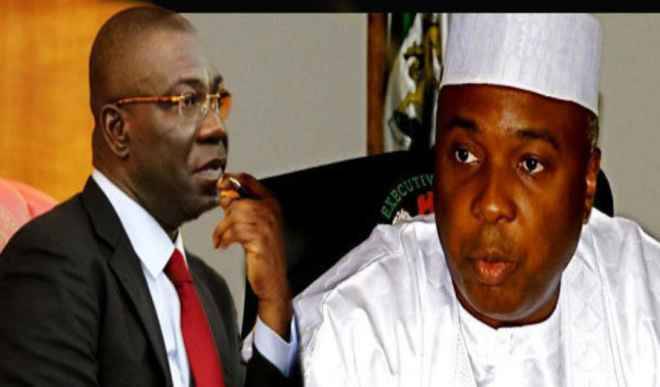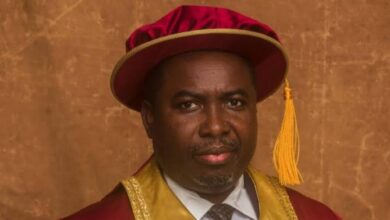Only Senate resolutions backed by 73 votes can remove Saraki, Ekweremadu – Court

The Federal High Court in Abuja on Monday struck out a suit seeking a declaration that Senate President Bukola Saraki and his deputy, Ike Ekweremadu, could only be removed from office by the Senate resolutions backed by the votes of 73 senators constituting two-third majority of the upper legislative chamber.
A group, the Civil Society Observatory for Constitutional and Legal Compliance, had filed the suit on August 29, 2018 following the siege by security agencies to the residences of Saraki and Ekweremadu to prevent them from gaining entry to the Senate chamber.
The plaintiff alleged that the development was in connivance between some All Progressives Congress members of the Senate, the executive arm of government and security agencies to harass Saraki and Ekweremadu with the motive to illegally remove them from office.
But delivering judgment in the suit on Monday, Justice John Tsoho, refused to grant any of the prayers sought by the plaintiff, including the one for an order of perpetual injunction stopping any plan to remove Saraki and Ekweremadu except by resolution backed by two-third majority votes of the Senate.
The judge held that although the suit was not contested by any of the 110 respondents, the plaintiff failed to prove the case with cogent and credible evidence.
“The plaintiff’s suit must succeed on the strength of its evidence and not on the weakness of the defence of the respondents,” the judge ruled.
The judge held that the newspaper reports presented before the court as the evidence of alleged threats of attempts to remove both Saraki and Ekweremadu through unconstitutional means in August 2018 lacked probative/evidential value.
“In law, newspaper reports are not generally admissible as the fact of what is recorded in them by virtue of section 37 of the Evidence Act,” the judge ruled.
He added that newspaper reports could be admissible as evidence of publication of a particular piece but not as the truth of the fact recorded in them.
He ruled that relying on newspaper reports as evidence of the truth of an event amounted to relying on hearsay evidence which lacked evidential value.
He said, although the prayers sought by the plaintiff were declaratory in nature, the plaintiff must establish its entitlement to them by adducing credible evidence.
“Applying the laws aforestated, it is crystal clear that in its bid to establish its case, the plaintiff has not shown any credible evidence in its affidavit to persuade this court in anyway,” Justice Tsoho said.
He added that “the burden” on the plaintiff “is quite heavy in view of the fact that declaratory relief is not granted even on admission by the respondents where the plaintiff fails to establish its claims”.
Striking out the suit, the judge held, “Accordingly, all the prayers sought cannot be granted for want of credible evidence.
“They are hereby refused and the plaintiff’s suit is struck out.” Punch









